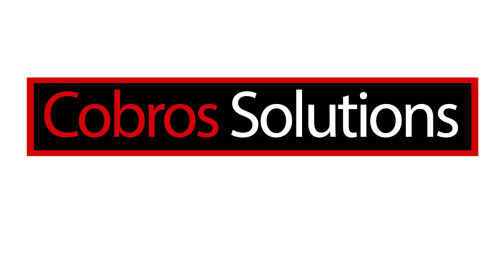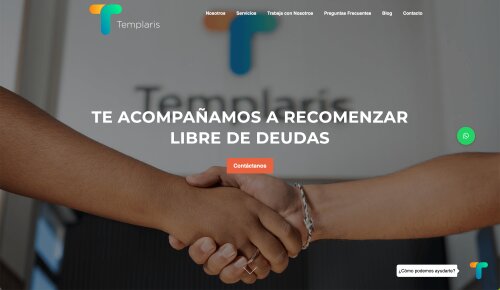Best Debt & Collection Lawyers in Dominican Republic
Share your needs with us, get contacted by law firms.
Free. Takes 2 min.
Or refine your search by selecting a city:
List of the best lawyers in Dominican Republic
About Debt & Collection Law in Dominican Republic
The legal framework concerning Debt & Collection in the Dominican Republic is designed to ensure that debtors are treated fairly while granting creditors the ability to recover debts owed to them. This sector of law is a significant aspect of commercial law and often involves negotiations and litigations. The Dominican legal system sets clear procedures for how debts can be pursued, emphasizing transparency and equitable treatment for all parties involved. Additionally, consumer protection laws play a role in shaping fair debt collection practices.
Why You May Need a Lawyer
There are several situations where seeking legal assistance in Debt & Collection is beneficial. Common reasons include:
- If you are a creditor having trouble collecting a debt and need to explore legal options to recover your money.
- If you are facing aggressive collection tactics and need guidance on your rights as a debtor.
- If you are involved in a dispute over the legitimacy of a debt or the terms of repayment.
- If you want to negotiate or restructure debt settlements to avoid litigation.
- If a case is being brought against you in court regarding a debt, requiring legal representation.
Local Laws Overview
Debt & Collection laws in the Dominican Republic are part of a broader legal structure under the Civil Code and the Commercial Code. Key features include:
- Assignment of Debt: Creditors can transfer debts to third parties under certain conditions.
- Statute of Limitations: There are specific time limits within which a debt must be claimed, generally ranging from 2 to 20 years depending on the nature of the debt.
- Consumer Protection: The law provides specific protections for consumers, including limitations on how debt collectors can pursue outstanding debts.
- Judicial Procedures: Creditors may need to pursue legal action, including filing a lawsuit to obtain a court order for debt recovery in contentious situations.
Frequently Asked Questions
What should I do if I am being harassed by debt collectors?
It's important to document all communications and report any abusive behavior to the authorities. Consider contacting a lawyer to understand your rights and possibly mediate the situation.
Can I negotiate the amount of debt owed?
Yes, often creditors are open to negotiation as they prefer to recover some amount rather than none. A lawyer can assist in these negotiations to ensure a fair settlement.
What happens if I do not pay a debt in the Dominican Republic?
If you fail to pay, creditors can take legal action to recover the amount owed. This could include freezing assets or garnishing wages following a court order.
How long do creditors have to collect a debt?
The statute of limitations varies based on the type of debt but typically ranges between 2 to 20 years. After this period, debts may no longer be legally enforceable.
Can debt collection agencies charge additional fees?
Collection agencies may charge reasonable fees, but these must be clearly stipulated within the original credit agreement or mutually agreed upon later.
Do I need to attend court for a debt-related issue?
Not always, especially if a settlement can be reached outside of court. However, if a lawsuit is filed, attendance might be necessary to present your case.
What are my rights as a debtor in the Dominican Republic?
Debtors have rights to be treated respectfully and fairly, to have accurate information regarding their debt, and to dispute any inaccuracies in their debt records.
Can debts be sold or transferred to other companies?
Yes, debts can be assigned to another party. The debtor should be informed about any such transfer and still has the same obligations to repay.
Is it advisable to declare bankruptcy for debt relief?
Bankruptcy can be a last resort for severe financial distress, offering relief from debt, but it has significant legal and financial implications. Consult a lawyer for advice.
How can I dispute a debt claim?
You should immediately collect all evidence concerning the debt and contact the creditor to address the dispute. If unresolved, legal intervention may be required.
Additional Resources
For further assistance, consider reaching out to the following resources:
- Nacional Institute for Consumer Protection (Pro Consumidor) to report unfair practices.
- The Finance Ministry for official guidelines on debt collection practices.
- Private collections and legal firms specializing in debt recovery.
Next Steps
If you need legal assistance in the area of Debt & Collection in the Dominican Republic, consider these steps:
- Consult with a specialized attorney to assess your situation and receive tailored advice.
- Gather all relevant documentation related to the debt or collection issue.
- Explore whether negotiation or mediation can resolve the matter without proceeding to litigation.
- Be proactive in understanding your rights and obligations under existing law.
Taking informed actions can significantly improve outcomes in dealing with debt and collection matters in the Dominican Republic.
Lawzana helps you find the best lawyers and law firms in Dominican Republic through a curated and pre-screened list of qualified legal professionals. Our platform offers rankings and detailed profiles of attorneys and law firms, allowing you to compare based on practice areas, including Debt & Collection, experience, and client feedback.
Each profile includes a description of the firm's areas of practice, client reviews, team members and partners, year of establishment, spoken languages, office locations, contact information, social media presence, and any published articles or resources. Most firms on our platform speak English and are experienced in both local and international legal matters.
Get a quote from top-rated law firms in Dominican Republic — quickly, securely, and without unnecessary hassle.
Disclaimer:
The information provided on this page is for general informational purposes only and does not constitute legal advice. While we strive to ensure the accuracy and relevance of the content, legal information may change over time, and interpretations of the law can vary. You should always consult with a qualified legal professional for advice specific to your situation.
We disclaim all liability for actions taken or not taken based on the content of this page. If you believe any information is incorrect or outdated, please contact us, and we will review and update it where appropriate.
Browse debt & collection law firms by city in Dominican Republic
Refine your search by selecting a city.













